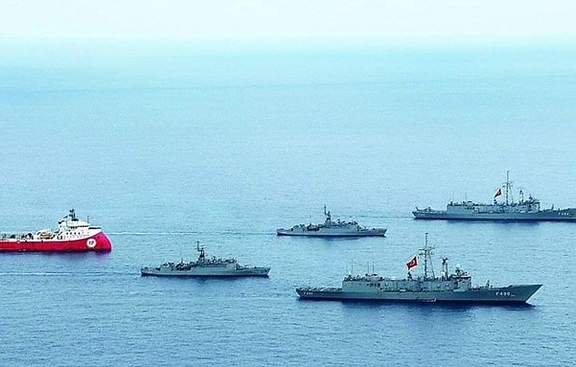Resources and Maritime Disputes
Territory lies at the heart of many international conflicts, and today most disputes unfold at sea rather than on land, often in resource-rich areas where weaker territorial integrity norms and energy security goals intersect. From the South China Sea to the Eastern Mediterranean and the Arctic, states pursue overlapping maritime claims amid growing energy insecurity in an increasingly multipolar world. A pressing concern, then, is to understand when and why such disputes escalate into militarized conflict. My dissertation project, Essays on International Politics of Energy Resources and Maritime Disputes, examines domestic political and energy market conditions that influence the military escalation of disputes over contested, resource-rich territories.
The first paper of my dissertation examines how de facto shifts in the territorial status quo trigger bipartisan backlash. Adversarial actions, such as offshore licensing, resource discoveries, or maritime boundary agreements, generate elite perceptions of sovereignty loss and resource exclusion. These perceived losses reshape domestic bargaining by fostering bipartisan convergence, thereby expanding the political space for escalation. To evaluate this argument, I compile a novel corpus of Turkish parliamentary speeches on maritime disputes (1996–2024) alongside event-level data from the Eastern Mediterranean. Using computational methods, including pre-trained word embeddings and semi-supervised topic models, I trace sovereignty and resource rhetoric and find that unilateral rival actions intensify bipartisan anxiety over sovereignty and resource access. These findings challenge claims that domestic distributional constraints deter leaders from pursuing resource-rich territories, showing instead that the prospect of loss unifies elite rhetoric and lowers political barriers to military escalation.
The second paper builds on this framework by examining how leaders strategically frame sovereignty and resource issues to amplify these perceptions during territorial bargaining. Leaders invoke territorial loss and energy security narratives to mobilize domestic support for the use of force and to signal stronger resolve to adversaries. I test this argument through three online survey experiments on a nationally representative sample of the American public. The results show that these narratives significantly increase support for militarized responses in maritime disputes. These findings highlight how leaders can bypass domestic distributional constraints and mobilize support for military action by strategically deploying loss and energy frames.
The third paper examines how international energy market conditions shape the militarization of maritime disputes between rival states. Rival states are particularly sensitive to shifts in future bargaining power and prone to experience credible commitment problems when bargaining over contested, resource-rich territory. I argue that the onset of offshore oil production and exports, high oil prices, and market volatility exacerbate these problems and push states toward risk-acceptant strategies. In contrast, energy trade dependency among rivals mitigates these dynamics and decreases the risk of military escalation. To test this argument, I link data on maritime disputes with energy market indicators and find that the start of oil production and exports, high oil prices, and volatility each increase the probability of conflict escalation among rivals, while greater energy dependence reduces it. These results advance our understanding of maritime conflict by moving beyond binary measures of resource presence to show how market conditions and energy trade shape the likelihood of militarization between rivals.


